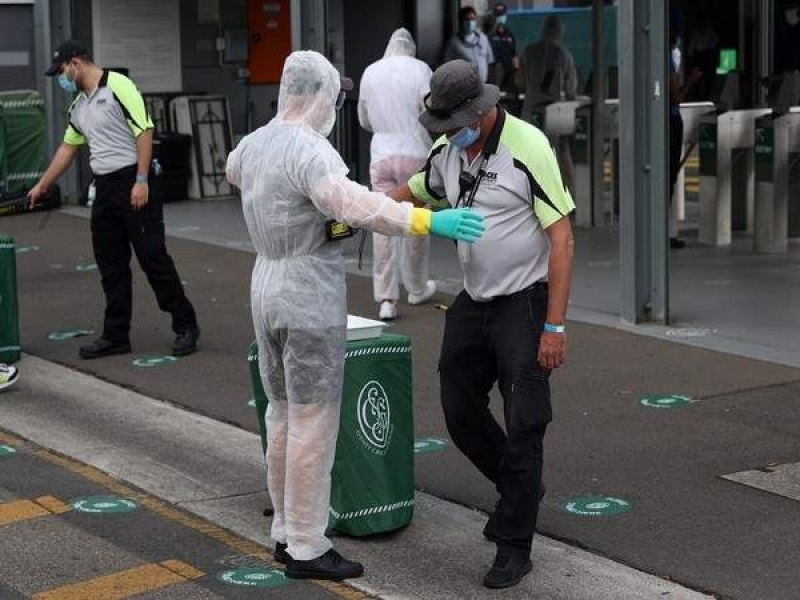
MOSCOW: Watching as Russia’s drive to vaccinate its citizens against coronavirus stumbled earlier this year, Sergei had a hunch that authorities would eventually make inoculations mandatory.
But the 30-something in the southern Krasnodar region had no plans of getting a jab.
So he found a dealer online hawking fake vaccine certificates, sent his personal details over encrypted messenger Telegram and transferred 15,000 rubles (US$200, €175).
Three weeks later, Sergei logged onto Russia’s government services portal to find a certificate showing he had received both doses of the country’s homegrown Sputnik V vaccine — without ever having been jabbed.
Russia last August stoked concerns over Sputnik V by registering the vaccine ahead of large-scale clinical trials, but international experts have since declared it safe and effective.
Many Russians are nonetheless wary, with some 60 per cent saying they do not plan to be inoculated, according to independent polling.
Sergei said he believes the jab has side effects, and fears the vaccine is “experimental”.
“I don’t want to die because of what the government wants,” Sergei said in an exchange on Telegram, showing AFP a redacted screenshot of his personal government portal showing his vaccine certificate.
That sentiment has helped foster a black market on Telegram and Russian darknet forums where dozens of dealers are claiming to sell fake jab certificates and even falsified registration on the government’s vaccination database.
While some clients complain of being defrauded, others have left reviews saying everything went as planned.
And demand has only grown since Sergei’s hunch came true.
Mandatory vaccines
Moscow last week ordered mandatory vaccinations for service industry workers, after only about a million of its 12 million residents got shots in the six months they were available. A host of other Russian regions followed suit.
Restaurant-goers in Moscow will also need to show proof of vaccination or previous infection starting from June 28, and further restrictive measures are expected as authorities move from persuasion to coercion in a bid to get more Russians vaccinated.
Moscow authorities say the measures are working, with some 60,000 people per day — 10 times more than before — now signing up for vaccination appointments.
But one seller on a darknet forum, speaking on condition of anonymity, told AFP that 20 to 30 orders for fake certificates were coming in daily.
“I’m getting asked to vaccinate whole companies,” the seller boasted in an exchange on Telegram.
At the low end of the black market, Russians can get a paper booklet certifying they were vaccinated for 2,000 rubles (US$28, €23).
At the top end, for 30,000 rubles (US$400, €350) middlemen say they can get a medical worker to pour out vaccine doses and upload falsified medical records to the government portal.
‘Jab down the drain’
That’s hardly difficult to imagine, said Pavel Brand, the director of a chain of family clinics in Moscow, pointing to doubts among Russia’s medical workers about vaccines.
This spring, a survey by the independent Levada Centre showed that 31 per cent of Russian doctors did not trust Sputnik V and 23 per cent did not plan to be inoculated against Covid.
Authorities are moving to crack down on the black market, with Moscow police opening two dozen criminal cases into “the manufacture and sale of fictitious certificates” and announcing three arrests this week.
The black market is just part of a much bigger problem that has seen only 16.2 million of Russia’s 146 million people fully vaccinated — deep-seated distrust in the country’s vaccine-producing capabilities.
Alexei, a 47-year-old IT professional who purchased a certificate for a friend working in the service industry, said he and the friend are not anti-vaxxers.
“I would probably still prefer to be vaccinated, but with an imported vaccine,” he told AFP in an exchange on a darknet forum.
Brand said that sentiment stems from a broader belief that anything foreign-produced — from an automobile to a vaccine — is likely to be better.
Russia’s bureaucratic medical apparatus has also made people adept at finding workarounds, he added, a legacy of a cumbersome Soviet system.
The black market is only one way to get around vaccinating, and there are other “much simpler” methods, said Brand.
“People just go to the clinic and give a certain nurse money” to dispose of vaccine doses and make a false registration, he said.
The method — so widespread in Russia that it is known as “jab down the drain” — has been used for years by nurses with mothers hesitant to vaccinate their children, Brand said.
“With Covid, I think it’s happening en masse,” he said.


